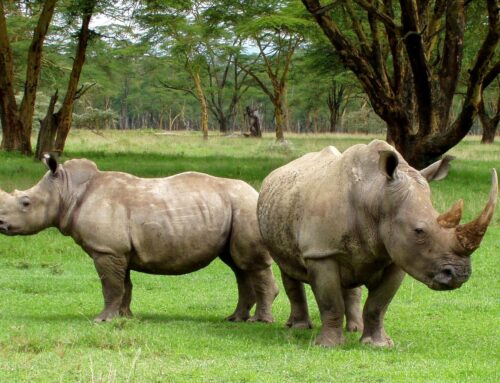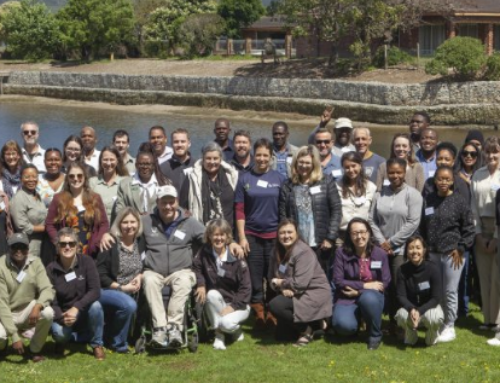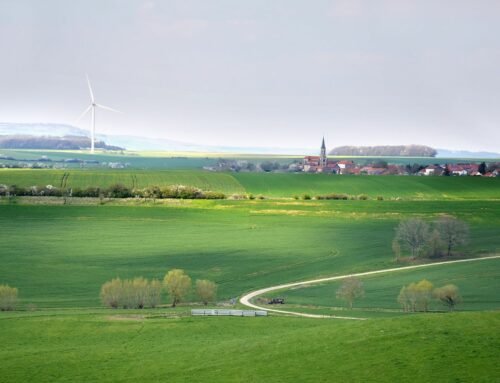SARChI Research Chair in Social-Ecological Systems and Resilience
Hosted by the Centre for Complex Systems in Transition at Stellenbosch University
Call for applications: Masters and PhD bursaries & Postdoctoral fellowships for 2016
Deadline for applications: 15 January 2016
Escalating global challenges such as climate change, food and water security, biodiversity loss, socio-political conflict and economic volatility, demand new approaches to researching and governing our environment and societies. Approaches that account for the complex relationships between human well-being and ecological sustainability, while dealing with ongoing change and uncertainty, have become critical. It is increasingly apparent that fundamental reorganization of our societies is necessary to achieve a just society for all, while maintaining the environmental conditions that underlie human prosperity. Navigating such a transformation will require a capacity to deal with changes that are fundamentally unknown and unpredictable - a capacity that is central to resilient systems. Building resilience of intertwined social and ecological systems is therefore increasingly regarded as essential to enabling sustainable development at local to global scales, and is a rapidly emerging research area worldwide.
The new South African Research Chair in Social-‐Ecological Systems and Resilience, held by Dr Reinette (Oonsie) Biggs, aims to contribute to this area specifically from a southern African perspective. The Chair is hosted by the newly established NRF Flagship initiative for ‘Complex Systems in Transition’ (CST) at Stellenbosch University. The CST builds on a strong history of transdisciplinary research and complexity studies, and hosts several leading scientists and students from diverse disciplinary backgrounds, providing a vibrant hub for solution-oriented, transdisciplinary, sustainability science. The Chair and CST are also partners in an exciting new collaborative research program, Guidance for Resilience in the Anthropocene: Investments for Development (GRAID), involving Dr Rika Preiser and Dr Laura Pereira from CST, together with the CSIR and the Stockholm Resilience Centre in Sweden. The primary objective of all these initiatives are to provide transformational knowledge on the dynamics of multi-scale social-ecological change, and strategic insights into the new modes of research and governance that can bring about a just transition to a more equitable and sustainable society, in southern Africa and globally.
Call for applications
We seek motivated individuals with a keen interest in sustainability issues, an interest and ability to integrate across the social and natural sciences, and who enjoy collaboration and are interested to participate in the events and activities of the CST. Interested individuals should have a strong track-record, and be interested in developing a career around topics such as complex thinking, social-ecological systems, biodiversity and ecosystem services, risk and resilience, tipping points and regime shifts, resilience assessment, paradigm shifts, co-learning, social innovation and sustainability transformations.
NRF bursaries are available to Masters and PhD students as well as Postdoctoral
fellows whose research interests relate to these topics, and particularly the following core themes:
• Complexity thinking and resilience-based approaches to studying social-ecological systems
• Resilience assessment and resilience-based strategies for managing social-ecological
systems
• Tipping points and regime shifts in social-ecological systems, including impacts on
ecosystem services
• Social-ecological innovation and sustainability transformations in developing countries
• Food systems and resilience
Degrees will generally be registered within the School for Public Leadership in the Faculty of Economic and Management Sciences at Stellenbosch University, but other options can be considered where necessary.
Value
Masters full-time over 2 years: R 70,000 pa
PhD full-time over 3 years: R 100,000 pa
Postdoc full-time for 2 years: R200,000 pa
Top-ups may be available depending on external funds. Reasonable running and travel expenses will
be covered.
Requirements
All students applying for a Masters degree should have completed a four-year undergraduate degree or equivalent to be eligible. Potential PhD candidates should have completed a Masters degree or equivalent. Potential postdoctoral candidates should hold a PhD in a relevant field, awarded within the last five years. All candidates should show evidence of strong scholarly performance and commitment to publishing.
Applications are particularly invited from South African nationals, especially women and candidates from previously disadvantaged groups. Preference will be given to students who can work independently, are well organized and who will be willing to participate in the regular activities of the CST.
To apply
Interested candidates should send:
• a motivation letter (detailing your previous experience, your general area of interest, as well as an outline of potential research topics of interest),
• a detailed CV that includes your academic record, previous work experience, any scientific
publications on which you have been an author, and the names of at least two academic referees,
• transcripts of academic qualifications,
• at least one example of recent written work (e.g. a paper, report, thesis chapter).
Please submit your applications electronically to our dedicated email address:
seschaircst@gmail.com
We encourage you to submit your application as soon as possible, but latest by 15 January 2016.












